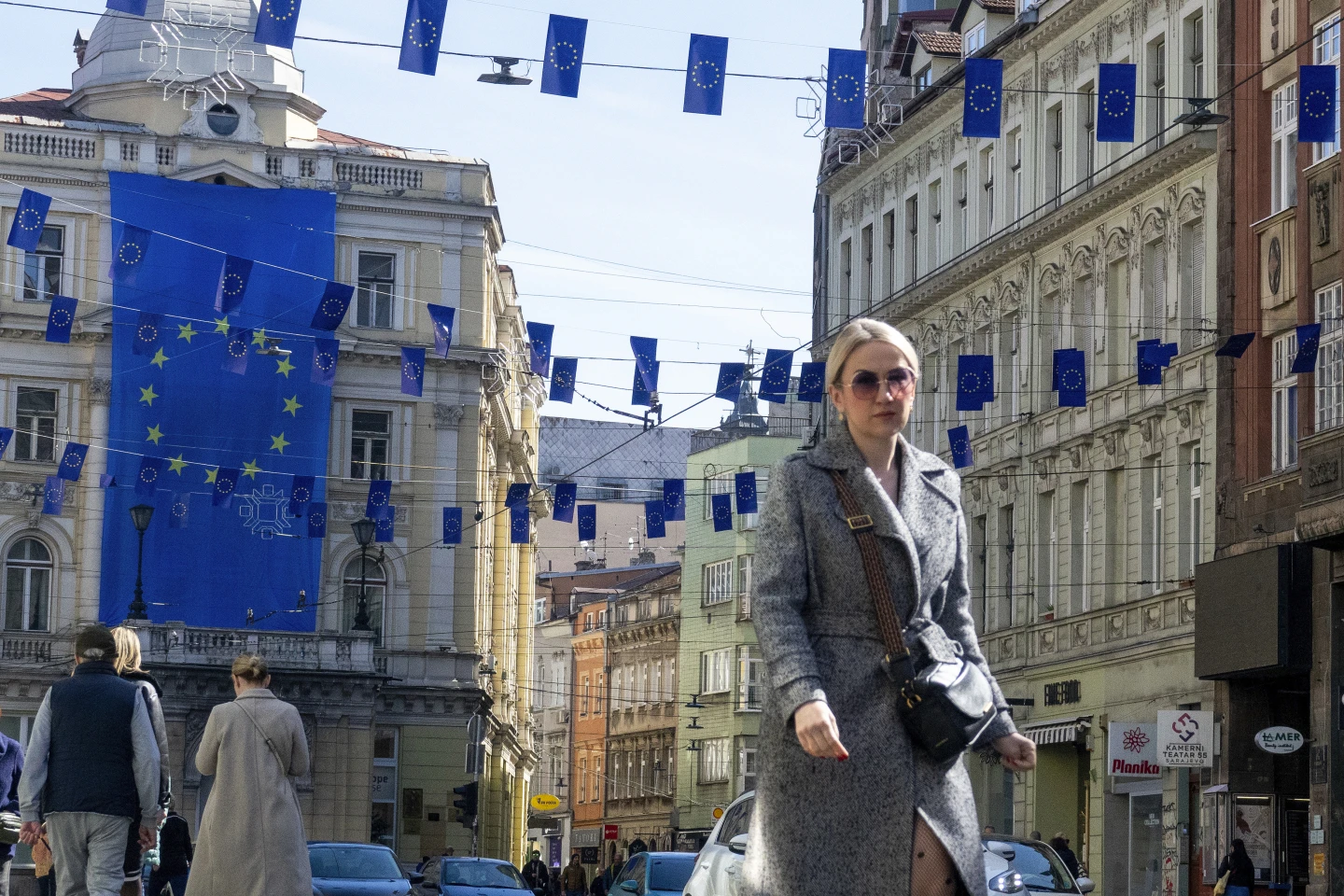
EU makes moves to incorporate Bosnia-Herzegovina
Featured image: EU flags in one of the main streets of Serajevo, Bosnia-Herzegovina on the 21st of March, 2024. Source: AP Photo / Eldar Emric
At the European Union (EU) summit in Brussels on the 21st and 22nd of March the 27 member states voted to open formal EU membership talks with Bosnia-Herzegovina.
Bosnia-Herzegovina proclaimed independence from Yugoslavia in 1992. This was soon followed by the Bosnian War which was a part of the Yugoslav Wars, resulting from the collapse of Soviet social-imperialism and the following imperialist struggle of repartition. Following the breakup of Yugoslavia, the imperialists used the contradictions among the people’s to have them fight in their interest. In Bosnia, the majority Bosnian Muslim population was used by Yankee-imperialism, while German imperialism used the Croats and Russian imperialism used the Serbs. In 1995 the war ended following an intervention by NATO, manly dominated by Yankee-imperialism. This established the current stalemate, where about half of the country and two thirds of the population is under the control of the Federation of Bosnia and Herzegovina, and the other half of the country and a third of the population is controlled by the Republic of Srpska. The Federation of Bosnia and Herzegovina has a majority population of Bosnian Muslims (around 70%) and a larger minority of Croats (around 22%), while the Republic of Srpska has a majority population of Serbs (around 83%). In 2005 the armies of the two entities were merged as a part of the process of incorporating the country in NATO.
The country is still not a NATO-member. According to a think tank of British imperialism it was thought that the Biden administration would work to quickly resolve the stalemate, but it has not done so because of “other domestic and foreign policy priorities”.
With the situation with the sharpening contradiction between Yankee and Russian imperialism, mainly expressed in the Russian war against Ukraine, German imperialism is now making moves to resolve the stalemate in its favor with incorporating the country into the EU, in which it is the dominating power.
With this move Bosnia-Herzegovina joins Serbia, Montenegro, and North Macedonia in being in formal negotiations to join the EU. Of the other former parts of Yugoslavia, Croatia is already part of the EU and NATO, while Kosovo is occupied by the Kosovo Force (KFOR) of NATO, consisting of 4.443 soldiers, as of January 2024, in addition to the civilian occupation force of the EU, EULEX, consisting of around 3.200 police officers, prosecutors and judges.
A particular challenge for the imperialists is incorporating all of the countries of former Yugoslavia into their institutions, despite the tensions they have created between the peoples.
European Commission President, Ursula von der Leyen, has previously stated that Bosnia-Herzegovina needs to join the EU as a “single, united and sovereign country”, meaning that in the process of incorporating the country, the situation with it being controlled by two different entities needs to be changed. In addition the imperialist in the EU, mainly German imperialism, has to impose several reforms in the country before incorporating it. According to von der Leyen, Bosnia-Herzegovina has fully adopted EU foreign policy, and started to adopt other reforms, such as with taxes and immigration.
Chancellor of German imperialism, Olaf Scholz, has stated that this is a “clear sign in favor of a strong Europe”. On the 21st of March, during the summit, he expressed the interest of German imperialism in taking action to increase its domination of the countries of former Yugoslavia, as well as Albania, and change the stalemate between, Yankee, Russian and German imperialism in the region: “For me, it is clear that the countries of the Western Balkans need to be able to rely on us. The promise was made over 20 years ago. Now we need to take the next steps.”

